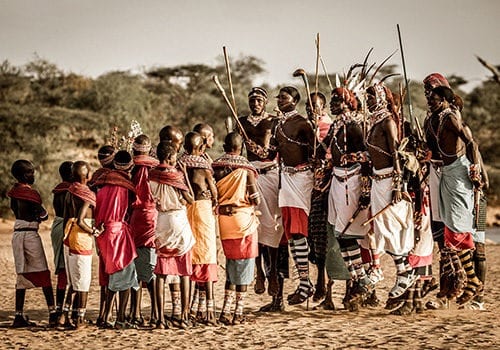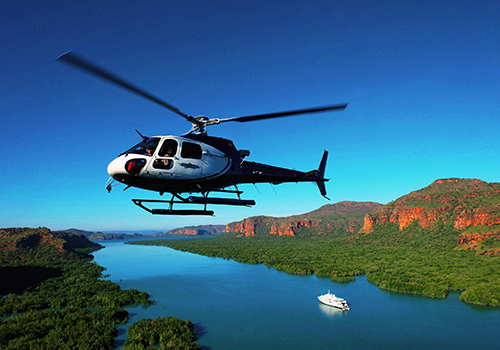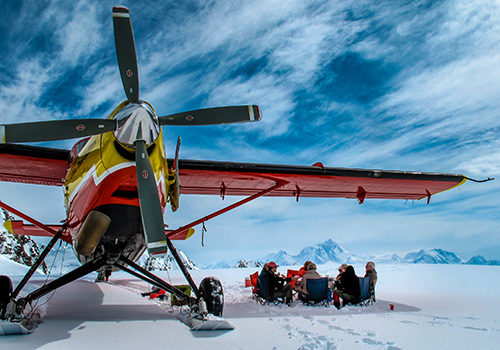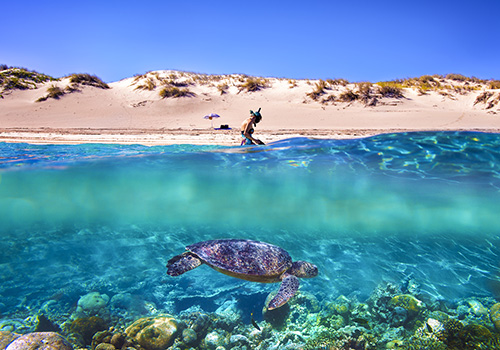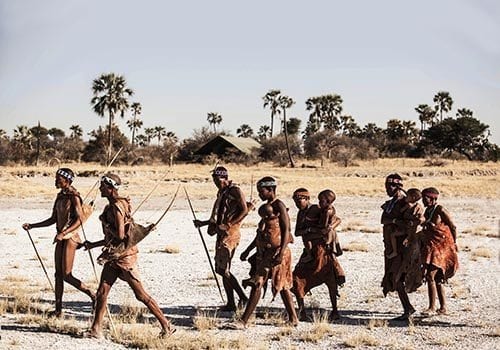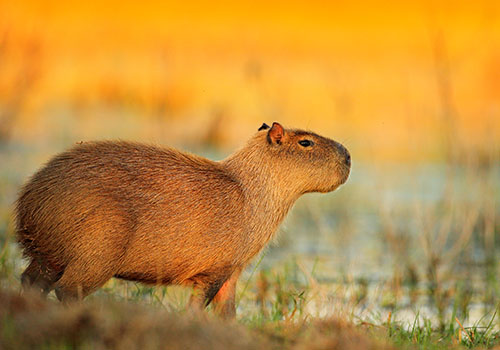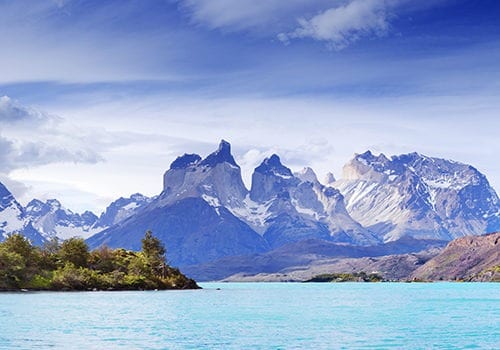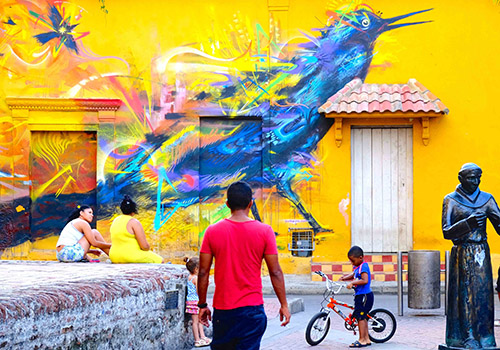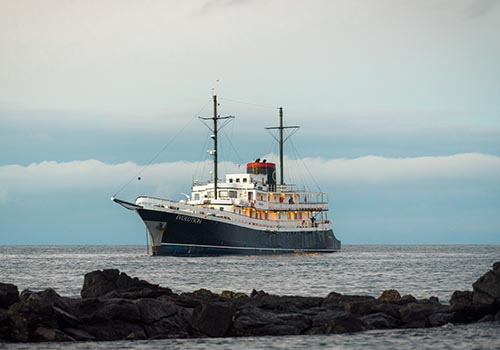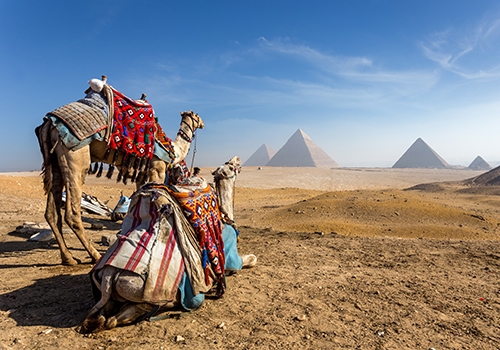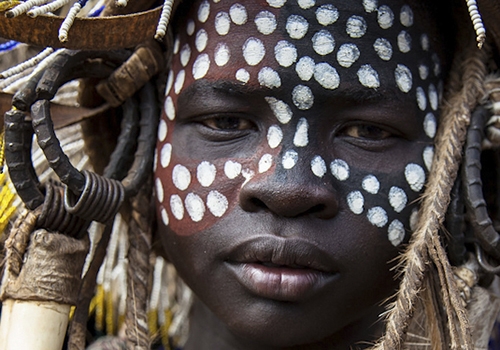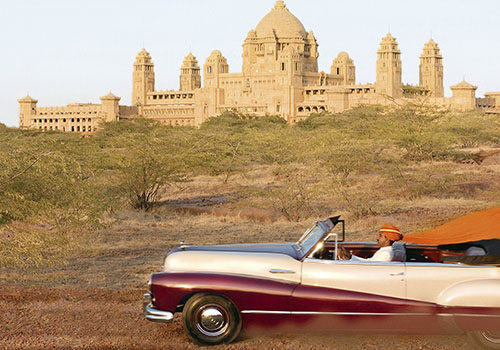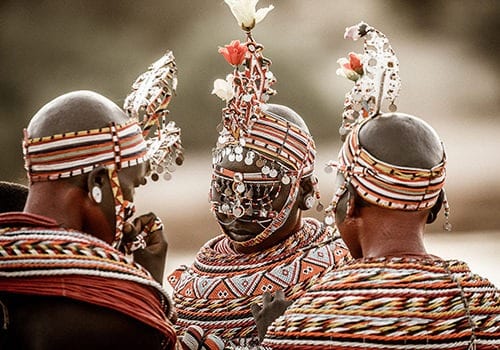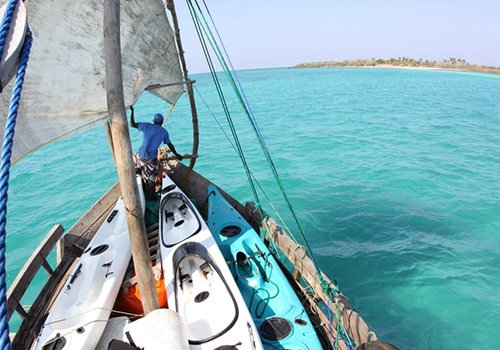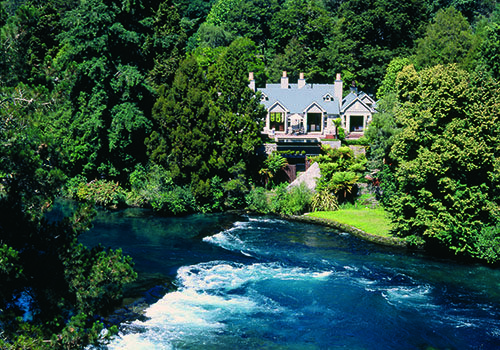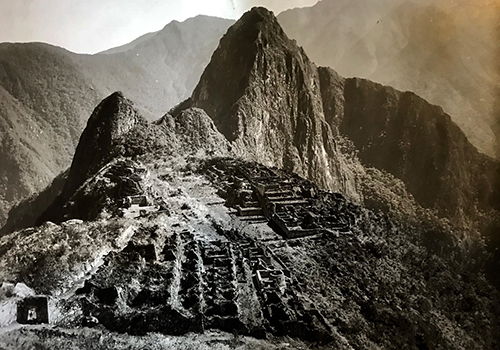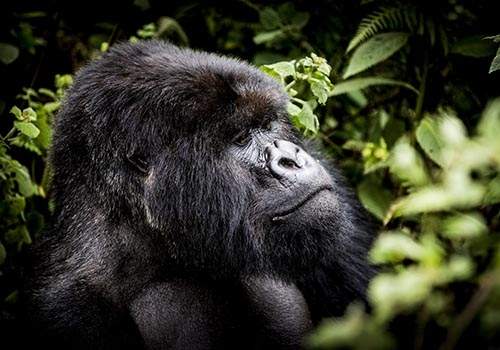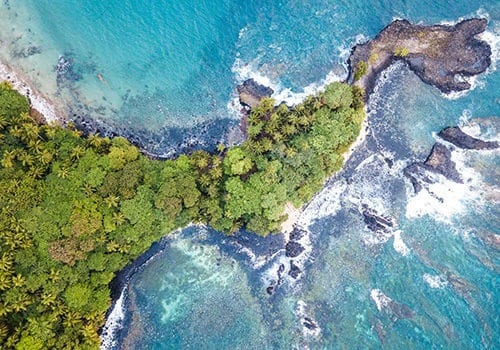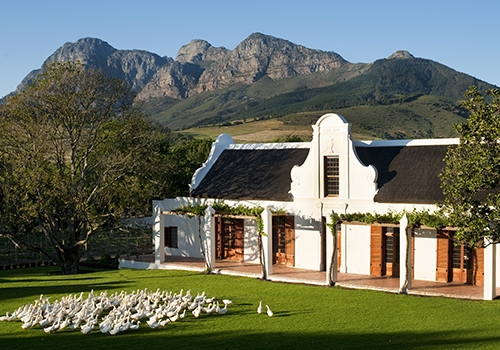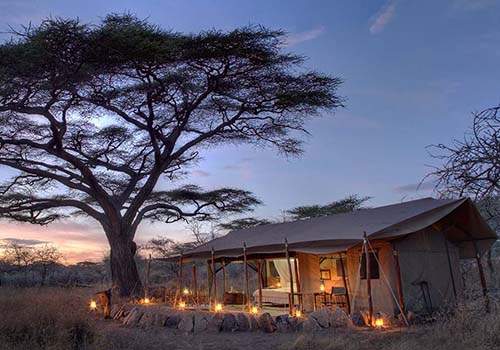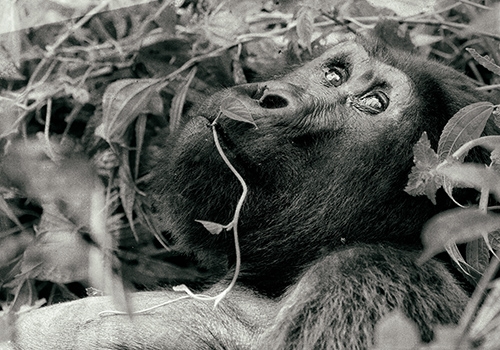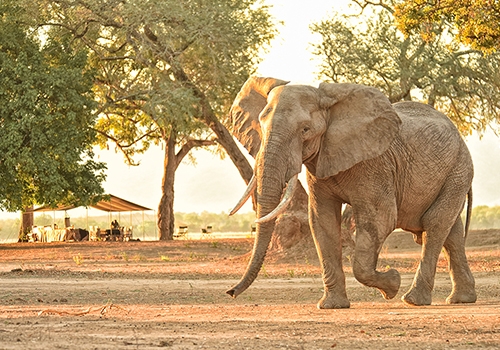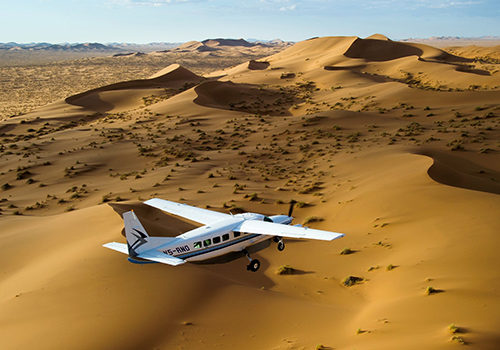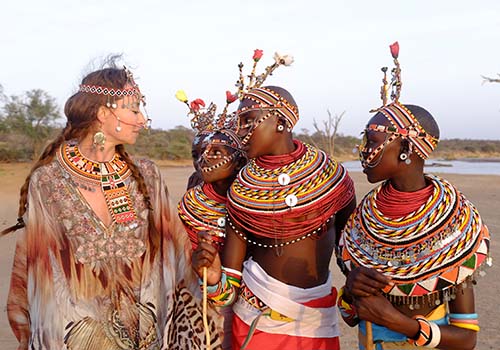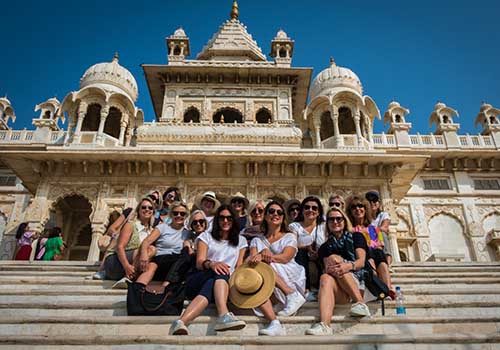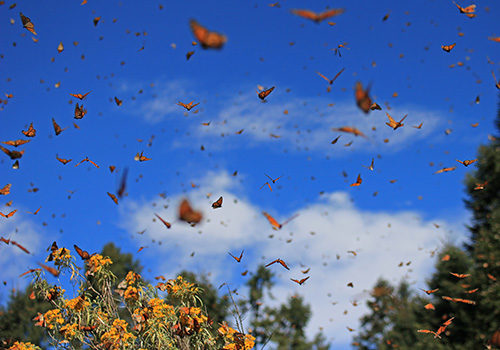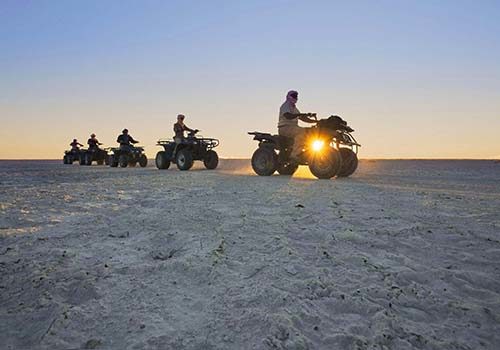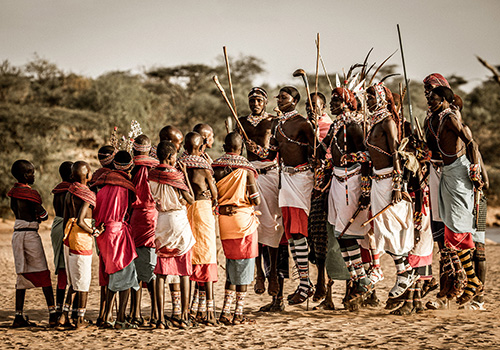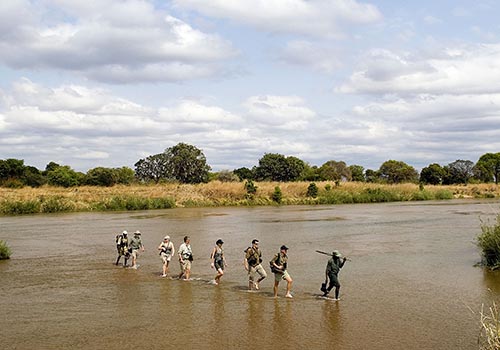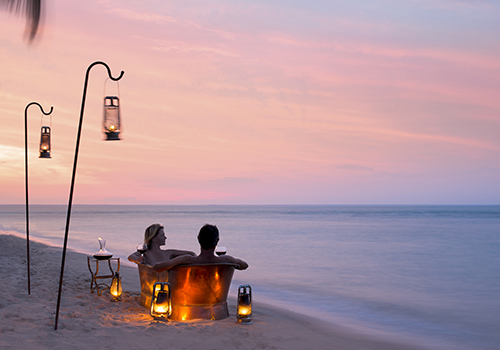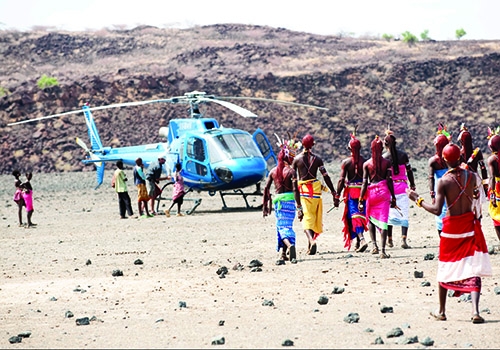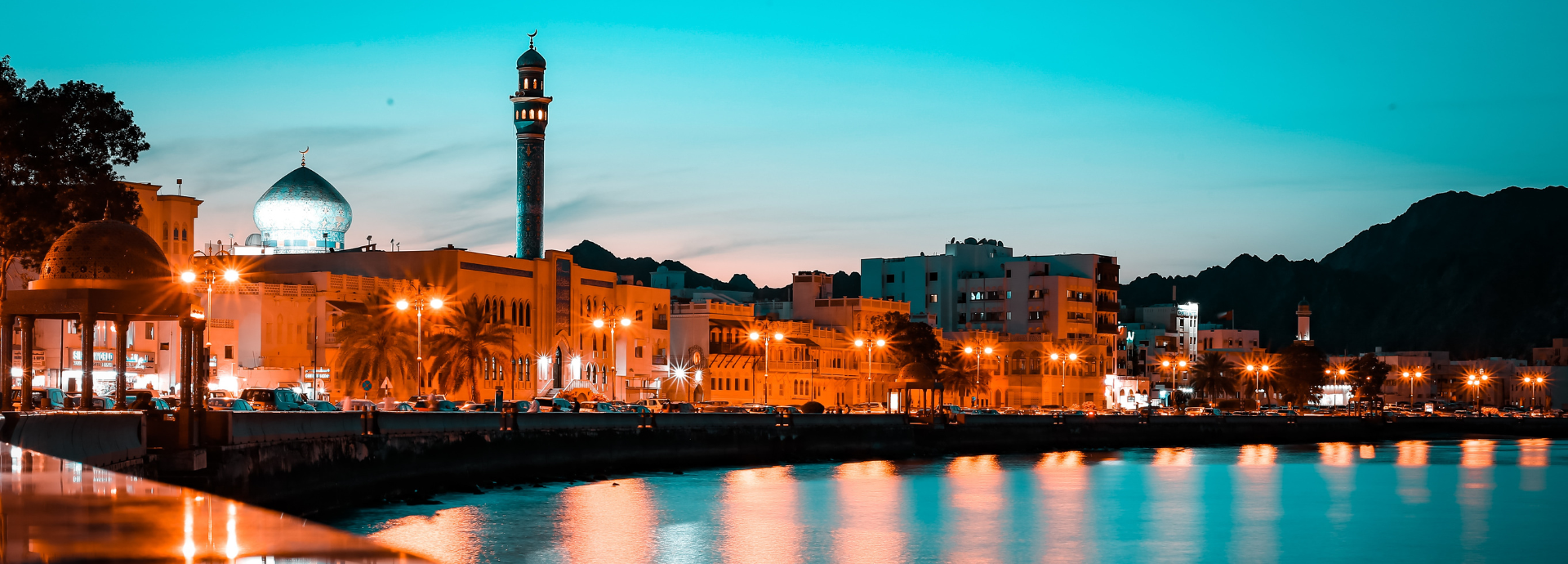
KEY INFORMATION TO PREPARE FOR YOUR JOURNEY
Oman, situated on the southeastern corner of the Arabian Peninsula, is known for its diverse landscapes that encompass mountains, deserts, and a pristine coastline along the Arabian Sea.
Renowned for its rich cultural heritage, Oman boasts historic forts and castles, including the impressive Bahla Fort and Nizwa Fort. The Wahiba Sands desert offers a glimpse into traditional Bedouin life, while the Hajar Mountains provide stunning hiking opportunities. The coastal city of Salalah, with its lush landscapes, contrasts the arid regions and offers a unique experience.
Oman’s blend of ancient charm, natural beauty, and warm hospitality make it a captivating destination for those seeking a unique Arabian experience.
This information will assist in preparing for your departure and includes helpful travel hints for when you are there.
PLEASE NOTE: All pre-departure information was correct at the time of writing, but should be used as a guide only since requirements can change at short notice and without warning. Consult Smart Traveller or contact the Embassy of the Sultanate of Oman or the appropriate authority prior to departure to confirm all details.
AT A GLANCE
OMAN KEY FACTS
Time: GMT +4 hours | AEST -6 hours
Capital: Muscat
International Airport: Muscat International Airport (MCT)
Official languages: Arabic
Religion: Islam is the predominant faith in Oman
Electrical Current: 240V | UK 3 square pin – Type G
Currency: Omanian Rial (OMR)
Australian Embassy in Saudi Arabia: There is no Australian embassy in Oman, so the Australian Embassy in Saudi Arabia is responsible for consulate matters: Abdullah bin Hozafa Al-Sahmi Avenue, Diplomatic Quarter, Riyadh, Saudi Arabia | T: +966 11 250 0900 | E: immigration.riyadh@dfat.gov.au
Visa: Yes – currently required by Australian passport holders and should be applied for online – refer to ‘Passport and Visa Requirements‘ for further details.
USEFUL WEBSITES
Smart Traveller – https://www.smartraveller.gov.au/destinations/middle-east/oman
Travel Doctor-TMVC – https://www.traveldoctor.com.au/destinations/oman
Embassy of the Sultanate of Oman in Tokyo – http://www.omanembassy.jp/
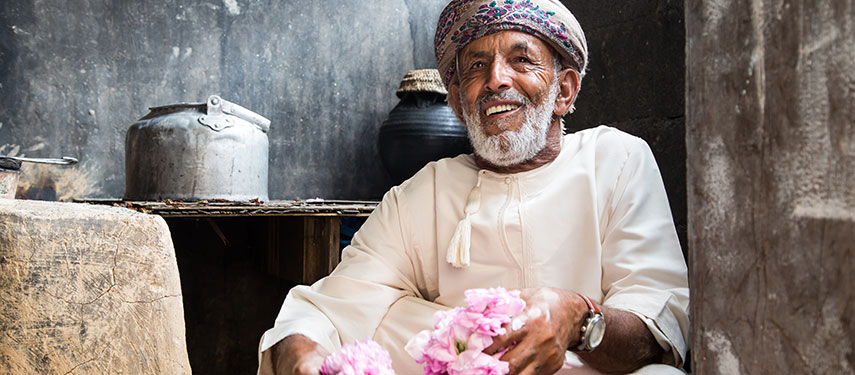
RAMADAN
The Islamic holy month of Ramadan is observed in Oman. Respect religious and cultural customs and laws at this time.
During Ramadan, eating, drinking (including water) and smoking may be illegal in public during the day. If you’re not fasting, avoid these activities around people who are. Seek local advice to avoid offence.
Ramadan is the most important month on the Islamic calendar. It’s the month in which the first verses of the Quran were revealed to the Prophet Muhammad. During Ramadan, Muslims around the world fast from sunrise to sunset.
DATES FOR RAMADAN
The exact dates of Ramadan depend on the sightings of the moon. This can vary from country to country.
2024: 10 March – 9 April*
2025: 28 February – 30 March*
* dates may vary
Eid-ul-Fitr
The end of Ramadan is usually a busy period in Muslim countries. People traditionally visit their families to celebrate Eid-ul-Fitr, the 3-day festival marking the end of the fast.
One or more of these days may be a public holiday.
PASSPORT & VISA REQUIREMENTS
PASSPORTS
Your passport must be valid for at least six months after your return to Australia and have at least two blank pages for every entry and country you intend to visit on your journey. If your passport does not meet these requirements you must obtain a new one. The Australian Passport Office website is www.passports.gov.au.
It is a wise precaution to carry a photocopy of your passport separately and leave a copy at home. This will aid authorities in processing a new passport should yours get stolen or lost.
If you have dual citizenship and more than one passport, we strongly recommend that you use only one of these during your travels, as in some countries it is considered illegal to have two or more passports. Be sure to use the same passport on entry and exit from a country, and never surrender your passport.
If your passport name is different to your commonly used name, advise us of this and ensure your airline reservations match those of your passport name.
VISAS
Australian passport holders require a Visa to enter Oman.
Australian citizens visiting Oman for up to 14 days for the purpose of tourism may be eligible for a free-of-charge entry visa. This is subject to the following conditions/requirements:
- evidence of your confirmed accommodation booking
- evidence of health insurance to cover your stay
- evidence of your return ticket
- your passport is valid for more than six months
The Omani 14-day free entry visa may not be extendable. You’ll need to leave Oman before the end of 14 days to avoid visa violation penalties. See Royal Oman Police for up-to-date information.
If you’re staying in Oman for more than 14 days, you’ll need to get a valid visa, and fees will apply.
This costs 20 OMR (approx. 52 USD), is valid for 30 days and has to be obtained within 6 months of departing for Oman.
To apply online, visit the Oman e-visa website: https://evisa.rop.gov.om. Select ‘apply for a tourist visit visa’ and follow the on-screen instructions.
NOTE: Entry and exit conditions can change at short notice.

AIR ARRANGEMENTS
PASSPORT NAME
Your airline reservation must be made in your legal name as it appears on your passport (i.e. names on tickets and passports must match). If your passport name is different to your commonly used name, advise us of this and ensure your airline reservation name matches those on your passport.
SPECIAL REQUESTS
Do let us know your seat preferences and any special requests so we can advise the airlines accordingly, however airlines do not guarantee seat preferences and some airlines now charge extra for this service.
Be sure to mention any other special requests you may have such as dietary requirements, kids meals and wheelchair assistance.
FREQUENT FLYERS
Prior to your departure ensure you have provided your consultant with your frequent flyer details so they can be added to your flight booking.
If you intend to use frequent flyer miles for your air travel you must book your own flights directly with the airline. It is a good idea to hold onto all your boarding passes in the event you have a query regarding points on your return.
DIY FLIGHT ARRANGEMENTS
If your flights are not booked by us ensure you provide your consultant with a copy of your flight itinerary so that we can share this with our ground operators who are responsible for booking corresponding ground transfers.
CLIMATE, WEATHER & SEASONS
CLIMATE
Oman has a long, hot summer and a short, cold winter. There is very little rainfall throughout the year and the difference between day and night time temperatures is significant. Pack accordingly.
In summer (April to October) it is very hot in the day and it can get over 40°C, but the temperature drops lots at night – particularly in the desert.
November and April are great months to visit Oman with cool evenings and pleasant, sunny days.
During the winter period (December – February) it can be surprisingly cold, particularly at night when it can sometimes get below freezing.
| MUSCAT | JAN | FEB | MAR | APR | MAY | JUN | JUL | AUG | SEP | OCT | NOV | DEC |
|---|---|---|---|---|---|---|---|---|---|---|---|---|
| Temperature (°C) | 16-25 | 17-27 | 20-29 | 24-34 | 28-39 | 30-40 | 29-37 | 28-36 | 26-36 | 24-35 | 20-30 | 17-27 |
| Rainfall (mm) | 20 | 25 | 15 | 11 | 5 | 1 | 2 | 5 | 0 | 0 | 5 | 10 |
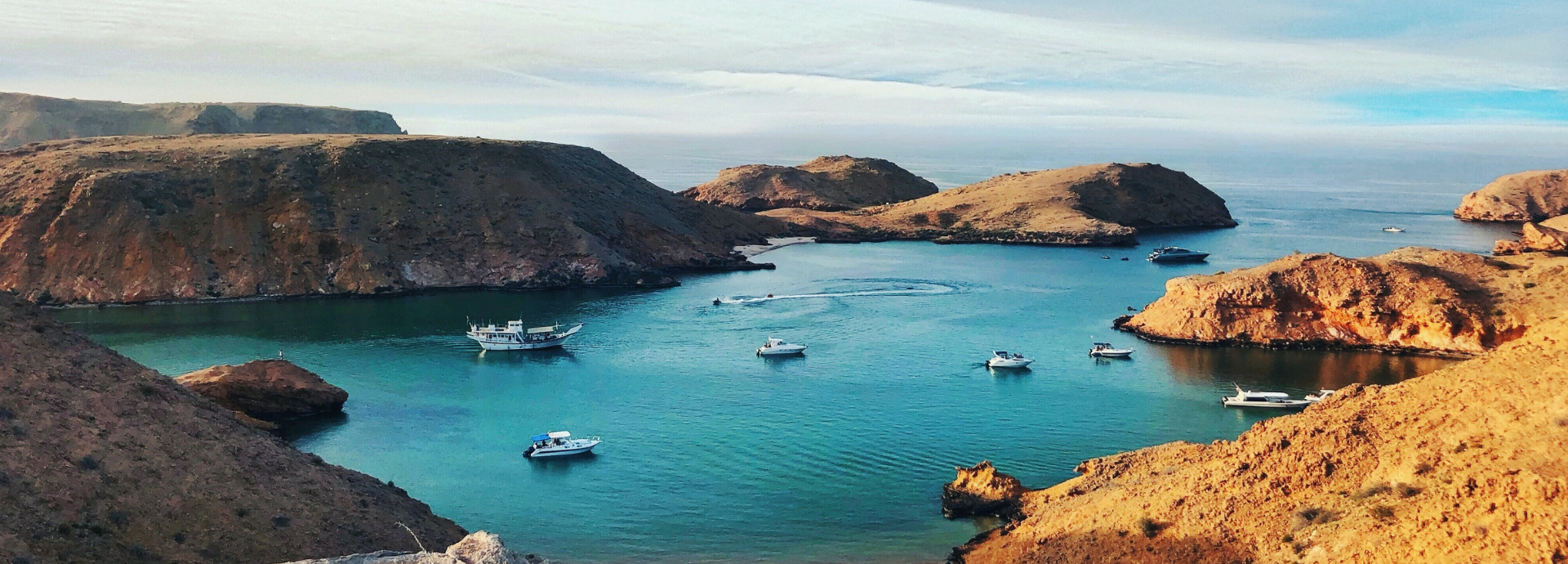
LUGGAGE & PACKING
LUGGAGE
Don’t take too much! You will regret bringing large unwieldy luggage & there is a lot to buy in Oman.
Most importantly please note that the trunk/boot of Omani cars can be relatively small. So if you travel with a large, hard-shelled suitcase you may have a problem getting your luggage to fit.
Wheelie bags with soft sides are ideal, along with a small back pack or shoulder bag for day to day items.
All luggage should also be capable of withstanding rugged treatment.
WHAT TO PACK
We recommend you pack casual, light, cotton clothing for summer as it can be very hot. The evenings can be quite cool, particularly in winter, so packing an extra couple of layers is a good idea.
It is best to travel in clothes that you feel most comfortable in, however you do need to be aware of some cultural sensitivities. Women should dress modestly. Omani women will never show their knees and rarely their shoulders. We recommend you do the same to avoid unwanted attention from men and women alike. Avoid short shorts and revealing dresses – or if you do choose to wear these styles we would suggest you have a scarf or pashmina with you in order to cover up should you wish, or need, to do so.
Laundry is offered in almost every hotel in Oman however please note that clothes are often hand washed so avoid handing over delicate or expensive items if you are at all worried about them. Most hotels offer overnight laundry so there is no need for excess clothing. You may be requested , or may prefer, to do your own under garments.
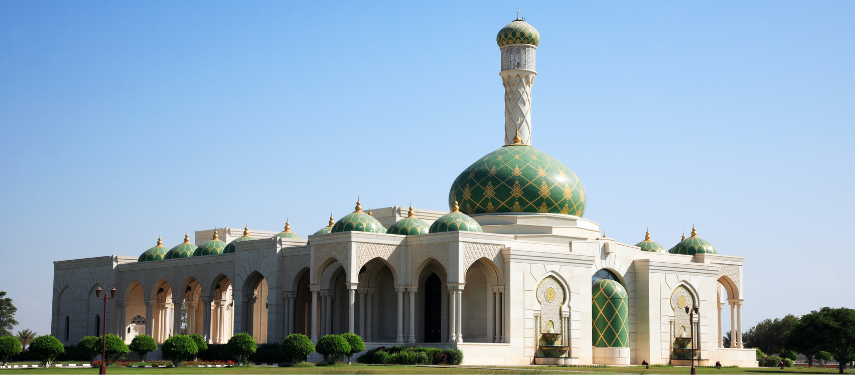
CLOTHING
- Light cotton shirts or t-shirts, both short & long sleeved
- Sweater/fleece
- Trousers – a combination of long & 3/4 length (2 to 3 pairs)
- Casual skirt or shorts (that cover, or at a minimum reach, your knees)
- Casual evening wear
- A scarf or pashmina
- A good pair of walking shoes
- Casual shoes & sandals or flip flops
- Socks & undergarments
- Gloves & scarf if travelling in winter
- Pyjamas
- Swimwear
ACCESSORIES
- Sunglasses
- Sun hat or cap
- Spare prescription glasses
- Contact lenses and saline
- Pen, paper, scrap book
- A novel
- Camera with spare memory cards
- Chargers for all electricals
- Adaptor plugs
- Small torch + batteries to use in the event of a power outage
- A scarf – for ladies to wear when visiting mosques or ancient sites
- Toiletries
- Ear plugs – Oman can be noisy (as can your travelling companion!)
- A water bottle
- Medical kit
INSURANCE
ENSURE YOU’RE INSURED
Although we hope you’ll never need it, having a comprehensive travel insurance policy is always highly recommended. No international travel is ever entirely without risk, and even the best laid plans can go awry.
Whilst we cannot recommend the right policy for you (as only you know you and what you need), below we have provided links to sites and articles that may help you navigate your way through the choices available.
PLEASE NOTE: The information provided here is subject to change at any time. Please always read the travel insurers’ relevant Product Disclosure Statements and refer to the Australian Government’s Department of Foreign Affairs & Trade’s (DFAT) Smartraveller website for up to date travel advice and their advice on Travel Insurance.
Whichever insurer you choose please provide us with a copy of your chosen policy, insurance certificate and all emergency contact details for our records.
WHAT WE OFFER
The Classic Safari Company is currently associated with the following travel insurance providers :
Each of the above insurers has varying strengths depending on the activities included in the trip you are undertaking. Their websites are easy to navigate and once you have entered your personal details and selected your preferences – be that to reduce your excess, include cover for cruising, increase your cover for cancellation or obtain cover for a pre-existing medical condition – the website will generate a quote. If you are satisfied with what is presented, you simply need to follow the steps to purchase your insurance policy online.
At what point in the booking process should I purchase travel insurance?
It is advisable to obtain comprehensive travel insurance at the time of confirmation/paying a deposit to ensure you are covered from the moment you book.
What should I look for when selecting coverage?
Most insurance companies will cover the basics such lost luggage or flight cancellations, but levels of medical cover vary from policy to policy, and the cover for global issues, such as pandemics, has changed significantly over the past few years. This excellent article, Travel Insurance Simplified, published on 07 April 2022, details what you need to look for when selecting coverage for your next trip. Smartraveller also publishes helpful advice on Travel Insurance.
What is the impact of DFAT travel advice?
Some insurance will not cover travel to countries where the Australian Department of Foreign Affairs & Trade (DFAT) is warning Australians to “Reconsider your need to travel” (Level 3) and most don’t cover travel to places with a “Do not travel” warning (Level 4). Most international travel insurance covers visits to Level 2 countries. DFAT travel advisories can change over time and this may affect your travel insurance coverage. You should always check the advice levels on the Smartraveller website.
How much does travel insurance cost?
Costs will vary depending on your age, destination, duration of your journey, preferred excess, cancellation cover, and if you have any pre-existing medical conditions. It is important to note that the inclusions with each policy are different so price is not the only factor you should consider when choosing travel insurance – cheaper policies often don’t provide the cover you might expect. You should read the small print carefully before purchasing any travel insurance policy to ensure it is suitable for your needs.
Can I use my credit card travel insurance?
Many premium credit cards come with complimentary travel insurance. If you elect to only be covered by your credit card travel insurance it is paramount that you understand the terms and conditions, policy availability subject to your age, trip duration and destination, item limits, sub-limits and exclusions that may apply. It is also worth noting that many credit card travel insurance policies automatically exclude cover for epidemics and pandemics and may not cover charter flights.
What about reciprocal health care agreements?
If you’re travelling to one of the 11 countries for which Australia has reciprocal health care agreements, you may also be able to access free health care at your destination under these arrangements. The exact benefits available to Australians in each partner country vary. At a minimum, you can generally access emergency medical and hospital care in any of these 11 countries by simply showing your valid Australian Medicare card.
Even if you’re travelling to a country that has a reciprocal health care agreement with Australia, it’s still a very good idea to get travel insurance as these care agreements can be quite limited. Travel insurance will also cover you for everything else besides your health, such as delays or cancellations.
HEALTH & VACCINATIONS
VACCINATIONS
It may be necessary to take medical precaution prior to, and whilst travelling. As we are not qualified to offer advice, we recommend you contact your GP or the Travel Doctor-TMVC who have the most up‐to-date information available. Requirements are highly personal depending on your health profile and the activities in your itinerary. Some vaccinations must be given well in advance of travel, so we suggest seeking medical advice as soon as you start to plan your trip. Be sure to ask what vaccinations or medications may be required to enter Oman and to re-enter Australia.
You can also refer to SmartTraveller for a guide as to what may be required, however you should always seek professional medical advice before travelling.
In Oman hospitals & pharmacies have well provisioned dispensaries, however it is recommended that you carry any medicines you think you may need (eg. Antihistamine, motion sickness/car sickness tablets).
Please ensure you advise us of any allergies or medical conditions prior to travel.
We also recommend that you have a dental check up prior to leaving home.
STAY HEALTHY ON YOUR TRAVELS
There is no reason to get ill in this part of the world as long as you are sensible. Even if you are used to dining out on exotic cuisines at home, the food will still be vastly different to what you are accustomed to. Because of the different spices, herbs & the density and composition of water, you may find that there is initially an effect on your stomach. This normally passes within 48 hours as you adjust to the change in diet but if the condition persists you should consult a doctor.
To avoid health problems here are a few basic guidelines:
- Get all the vaccinations your doctor recommends.
- Drink bottled water.
- Do not eat uncooked vegetables or meat, peel all fruit before you eat it, avoid salads and only eat food which has been recently cooked.
- Avoid ice in your drinks (unless the hotel has a water purification system).
- Be very particular about personal hygiene, keeping your hands very clean.
- We do not recommend you eat from street vendors unless you are brave!
- Cover up – use insect repellent, mosquito nets and wear long, loose, light-coloured clothing
- Drink boiled water or bottled water with sealed lids, except in lodges and hotels where water quality is tested and assured
- Don’t swim in fresh water unless told it is safe to do so
NOTE: If you have the appropriate level of cover you may be able to claim a rebate through your private health insurance under your extras cover for part of the cost of your vaccines and anti-malarial medications. We recommend you check with your private health insurance company.
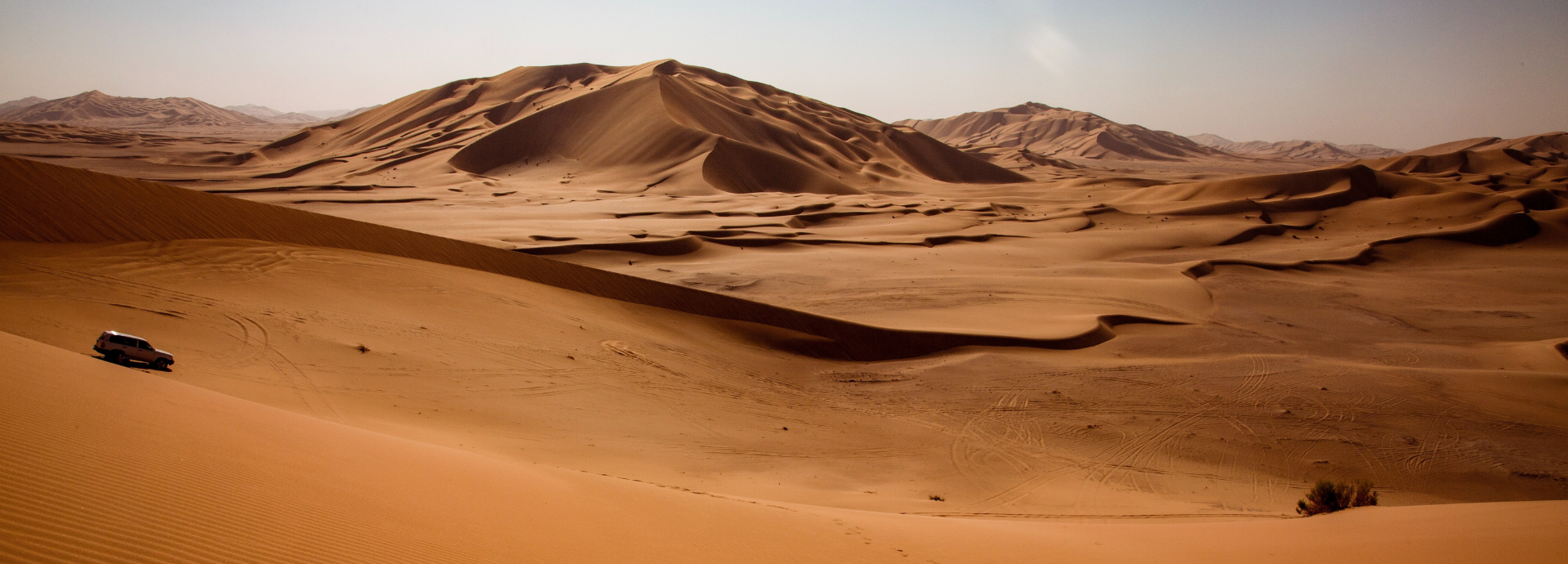
FOOD & DRINK
FOOD & DRINK
Oman offers a unique culinary experience that reflects the country’s history and geographical influences. Traditional Omani cuisine is characterised by the use of aromatic spices, rice, and a variety of meats, such as lamb and chicken.
One of the iconic dishes is “Shuwa,” a flavourful slow-cooked marinated meat, typically prepared during festive occasions.
Omani cuisine also features an array of seafood dishes due to its coastal location, with grilled fish and prawns being popular choices.
Dates and coffee play a significant role in Omani hospitality, with the traditional Omani coffee, “kahwa,” being served alongside sweet dates as a gesture of welcome.
Visitors can explore the local markets, known as “souks,” to discover a range of spices, dried fruits, and Omani sweets like “halwa,” a sticky and delicious confection.
Additionally, modern influences have led to a variety of international cuisines being embraced in urban areas, providing a diverse culinary experience for locals and tourists alike in the Sultanate of Oman.

CULTURE & CUSTOMS
Local laws reflect the fact that Oman is an Islamic country. You should respect local traditions, customs, laws and religions at all times and be aware of your actions to ensure that they don’t offend, especially during the holy month of Ramadan or if you intend to visit religious areas.
It is best to travel in clothes that you feel most comfortable in, however you do need to be aware of some cultural sensitivities.
Women should dress modestly. Omanian women will never show their knees and rarely their shoulders. We recommend you do the same to avoid unwanted attention from men and women alike. Avoid short shorts and revealing dresses – or if you do choose to wear these styles we would suggest you have a scarf or pashmina with you in order to cover up should you wish, or need, to do so. Swimwear is fine on beaches and around hotel swimming pools but not in other public areas.
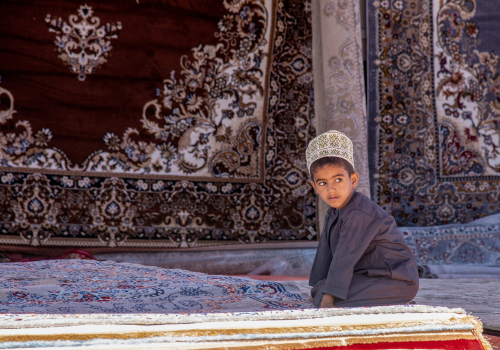
While those of the Islamic faith are forbidden to drink, alcohol is available in licensed premises such as hotels and restaurants. However alcohol it is illegal to drink or carry alcohol in other public areas.
During the month of Ramadan Muslims do not eat during the day, however, food is made available in restaurants and hotels. It is advisable not to smoke or eat in public places during Ramadan, as this may cause offence to the local people.

MONEY MATTERS
CURRENCY AND EXCHANGE
The unit of currency in Oman is the Omani rial (OMR), which is divided into 1000 baisa.
Australian dollars are not accepted in Oman, however both US dollars, Euro and other major currencies can be exchanged for Omani Rial. Money can be exchanged at banks, at a Bureau de Change and often in larger hotels.
It’s best to take a mixture of money – credit card, debit card or travel cash card, plus cash just in case. Small denominations of USD or EURO are advisable – especially for tipping. If all else fails, have someone you can depend on who will make an emergency transfer of funds.
ATM machines are available in most cities & towns, however in rural areas they may be less common so do not rely on these as your sole source of funds. Please be vigilant if you do withdraw cash.
Larger hotels, souvenir shops (not souqs & bazaars) and restaurants in the major towns and cities accept most credit cards. However do not rely on credit cards as your principal source of finance.
Visa and Mastercard are the most commonly accepted. AMEX is not so popular and in some instances is not accepted at all. Please note that you need to take your physical credit card, and you need to know your PIN number, as not all places will allow you to ‘tap’. In some cases you may also be asked to sign.
It is recommended that you DO NOT change money on the black market as you are more likely to receive a lower rate of exchange or fake notes.
TELL YOUR BANK
We highly recommend you advise your bank of your destinations and travel dates. This should prevent any of your transactions being deemed as ‘out of the ordinary’ (and possibly stopped) due to their unexpected location.
TIPPING
While tipping is always appreciated in Oman, it is rarely expected, and no matter if one per cent or 50 per cent is given, the most important thing is to treat service staff with respect. A smile and a thank you goes a long way.
Some restaurants add a service charge to the bill (usually between 10-15%). For restaurants that do not add a service charge a 10% tip is adequate.
Taxis in Oman are cheap and plentiful, and therefore tipping the driver is a common occurrence. Usually a small tip of 1 OMR is given, but generally passengers will just round the fare up to the nearest note and allow the driver to keep the change.
Most people tip hotel staff and valet drivers but it’s not always expected, so don’t worry if you don’t have any change on you. Most guests would give between 1 OMR, but you should give them slightly more if you have a lot of suitcases.
Always carry extra money for those unexpected tips, for drivers, guides or staff that deserve that bit extra.
SPENDING MONEY
Your itinerary and invoice will indicate inclusions and exclusions throughout your itinerary booked by The Classic Safari Company.
It is difficult to calculate exactly how much each person will spend. However, as a rough guideline, we suggest you budget around US$50-70 per person per day for extras such as additional meals, tips, drinks and personal purchases.
Of course if you plan to shop ’til you drop – and there is a lot of great shopping in Oman – then budget accordingly!
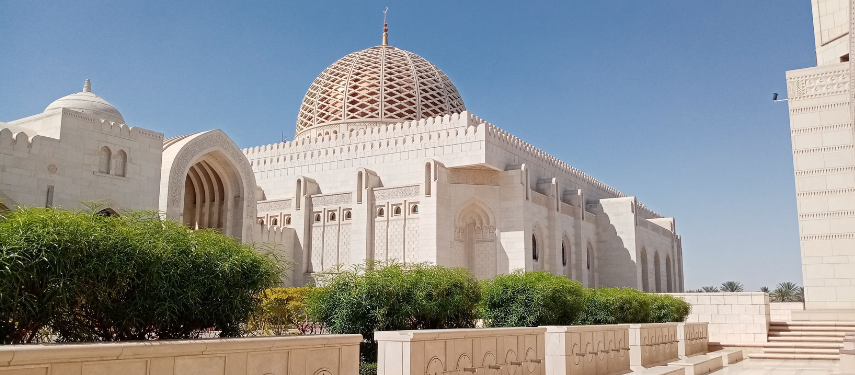
POWER, TECH & PHOTOGRAPHY
POWER
There are basically two main voltage systems used around the world: 110 Volt ‐ USA, Canada, Spain & Japan 220 Volt ‐ the rest of the world. In simple terms, the power supply available at the socket is roughly twice as powerful in 240V countries as in 110V countries.
The voltage in Oman is 240 Volts, therefore if you wish to use any electronic devices from Canada, the US or Japan you’ll need a voltage converter AND a plug adapter. Australia operates a 220V currency and therefore you only require an adapter for Australian appliances.
The adaptor you will need for Oman is a TYPE G – three square pins, or alternatively, you may prefer to invest in an International Travel Adaptor that provides you with more than one option.
Many adaptors also have a USB port so you can plug your smart phone, or I‐product directly into the adaptor.
For the latest & most up to date information about voltage and what adaptors to travel with refer to: www.korjo.com
ADAPTORS
Oman uses a 240V electrical current and a type G socket (UK 3 square pin)

SMART PHONES & DATA
Smart phones can be wonderful travel companions. Not only will they help you stay in touch with friends and family, they’ll guide you through unfamiliar cities, enlighten you on local attractions, translate foreign languages and produce great photographs.
Left unchecked they can also wreak havoc with your travel budget!
The reason is that some (but not all) of the fun and useful functions smart phones perform require the downloading of data via an internet connection. Unfortunately, if you’re paying for data roaming it can be an expensive exercise and you run the risk of returning home to an expensive shock.
If you want to make the most of your mobile device, while avoiding unexpected and unpleasant charges, keep in mind the following tips:
- Buy an International Roaming Pack ‐ think about buying a pack from your phone network before departure in order to access cheaper rates
- Remove your regular SIM and replace it with a pre‐paid SIM either purchased before departure or upon arrival. Not only will you benefit from better prices for data, voice calls and SMS, but there will be a pre‐set limit on how much you can spend giving you some piece of mind.
- Turn off global roaming ‐ the problem with data roaming is not simply the exorbitant costs travellers are charged for downloading megabytes, it’s the fact that this data is often being sucked down without you even being aware of it.
To be safe, the easiest thing to do is simply disable data roaming.
We do NOT recommend taking advantage of free-wifi in public places such as airports and malls. The connection is often insecure, and you could run the risk of data & information theft. If you do need to go online, whether to check your emails, use a handy app or make an online booking – your best option is to find SECURE free or affordable Wi‐Fi.
PHOTOGRAPHY
Photography plays an important role in any holiday. Zoom lenses are a great asset as are wide-angle lenses for landscape shots. The best over-all lens to take would be a zoom in the 70mm-300mm range. Only if you are a keen birder, would you need a lens greater than 300mm. For digital cameras it is suggested that you bring two rechargeable batteries and ensure that you have adequate memory space.
Please respect local customs and feelings when taking photos. You may need to tip locals in order to take photos. It is forbidden to photograph certain places such as airports, dams, bridges, government buildings & military installations in many countries. If in doubt, ask!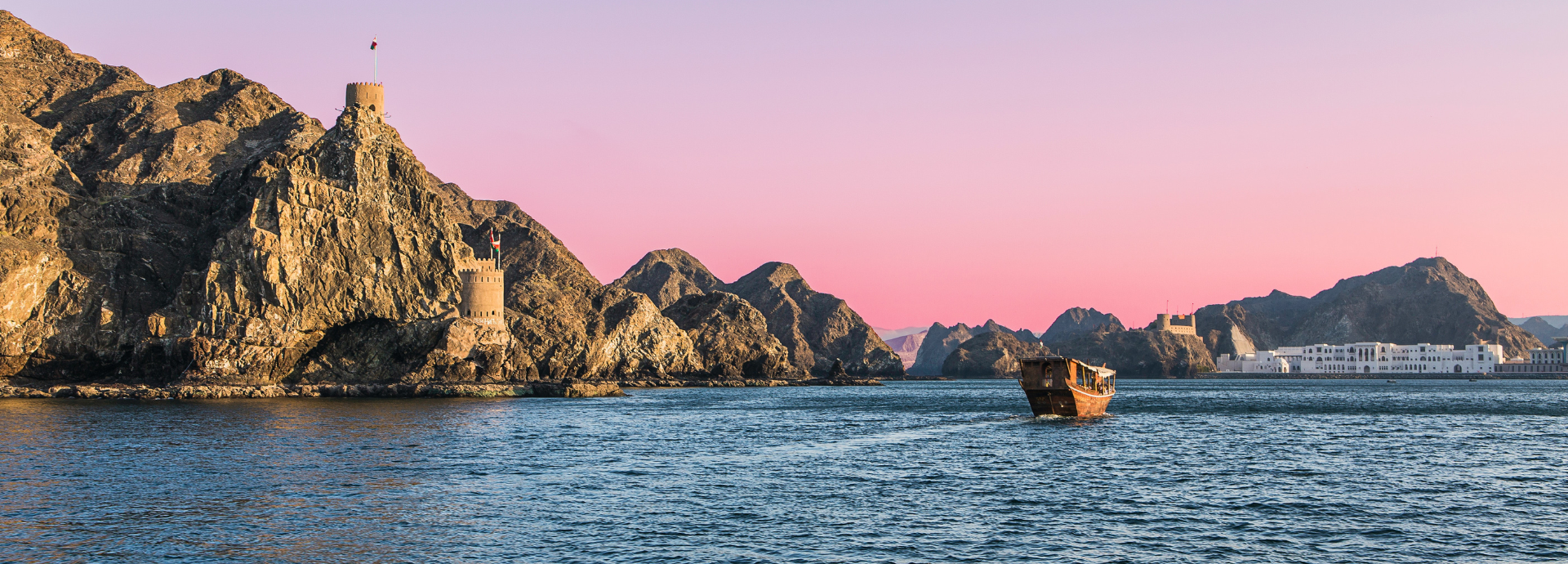
CLASSIC SAFARI CO TRAVEL APP
Your very own App for travel – let the countdown begin!
The CLASSIC SAFARI CO App is supplied courtesy of The Classic Safari Company. It is a very handy tool with the upside being that you can view all your travel documents on your device at any time, whether connected to the internet or not. It will be where we house all your travel documents. Our App along with emailed digital copies of your travel documents, will be all that you will require once travelling.
Therefore, it is important to take the time to become acquainted with The Classic Safari Co App, and contents, well before you travel.
To start viewing your travel documentation you will need to download, at no cost, The Classic Safari Co App on your Phone, iPad or Tablet by following these steps:
- STEP 1 : Be sure you have internet access
- STEP 2 : Open the App store on your device and search for ‘The Classic Safari Co’ or download on the Apple App Store or Google Play
- STEP 3: Once installed and opened, you’ll be asked for your User ID and your Unique Passcode. Please enter the following:
- USER ID: TCSC
- UNIQUE PASSCODE: NAME+FILENUMBER
Click accept and wait for your travel documents to download before starting your journey on the App.
NOTE: If you prefer to access your trip details and documents on your personal computer, you can do so by visiting https://web.vamoos.com/. Please use the same user ID and unique passcode provided above.
HOW TO DOWNLOAD
Open the App store on your device and search for ‘The Classic Safari Co’. Alternatively, using your device click the icons below to download on the Apple App Store or Google Play
OUR APP LOOKS LIKE THIS:
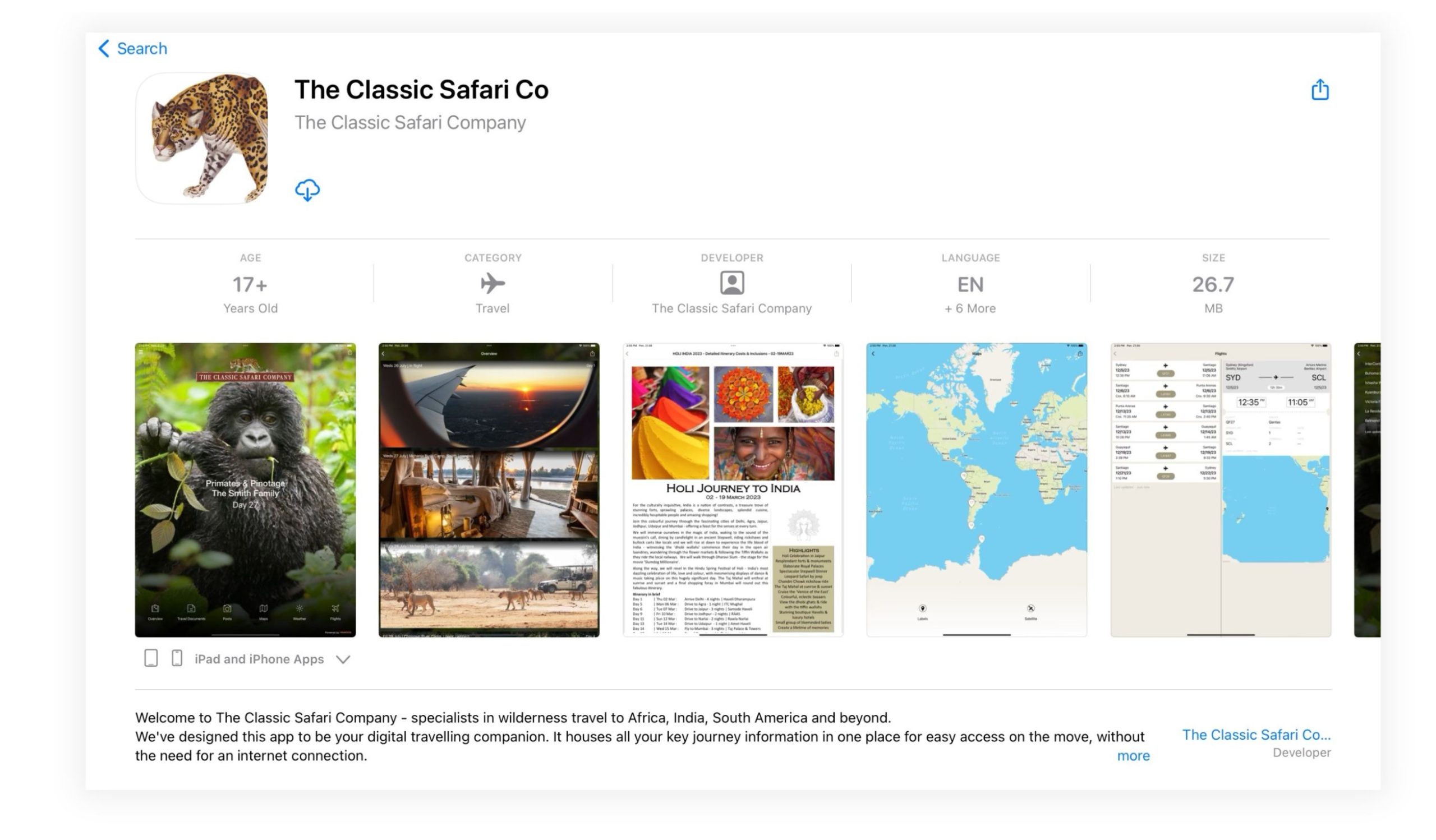
ON THE APP YOU WILL FIND:
- Your travel documents
- Destination information
- Maps
- Real time weather data
- E-tickets and flight information (if applicable).
ADDITIONAL OPTIONAL DOCUMENTS
We can also upload additional documents such as Tourist Visas, Vaccination Certificates, and your Travel Insurance Certificate if you wish to have them on hand as you travel. If you would like us to add these for you please email any additional documents in PDF format (only) and we will add them to your profile. We do not recommend adding or sharing your passport information online.
UPDATES & CHANGES
We will update all documents if and when changes occur, and prior to your departure we will furnish you with emergency contact information and any relevant travel vouchers.
OFFLINE USE
The greatest benefit of using our App is that once the initial download has occurred you will no longer require internet access to view what has been uploaded for you.
SECURITY
Please note that the software developer of our app (Vamoos) cannot guarantee the safety of personal data against identity theft, particularly if you are using a free wifi service whilst travelling. We do not recommend using free wifi services anywhere in the world.

ALREADY HAVE THE CLASSIC SAFARI COMPANY APP INSTALLED?
If you already have The Classic Safari Co App installed, to load a new trip you simply need to follow these steps:
- STEP 1: Open The Classic Safari Co App on your device and in the top left corner you will see 3 small horizontal lines (the burger menu). Click these and look for the words ‘Load New’… click this and then enter:
- USER ID: TCSC
- UNIQUE PASSCODE: NAME+FILENUMBER
- STEP 2: Wait for your travel documents to download before starting your journey on the App.
Should you have any questions about the App or the information uploaded for you please don’t hesitate to get in touch.
Thanks, have fun and let the countdown to your departure begin!
